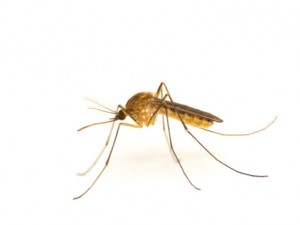 Heartworm is a parasite found in dogs and cats that invades the heart and its primary vessels. The canine disease is endemic in the Northeastern United States and the rate of infection is rising. The worms are parasites, transmitted by the injection of infected blood into an animal by a mosquito, during a blood meal. Once injected, cardiac function is compromised. The illness is often characterized by a heart murmur, exercise intolerance, respiratory distress, and in grave cases, complete physical collapse in death.
Heartworm is a parasite found in dogs and cats that invades the heart and its primary vessels. The canine disease is endemic in the Northeastern United States and the rate of infection is rising. The worms are parasites, transmitted by the injection of infected blood into an animal by a mosquito, during a blood meal. Once injected, cardiac function is compromised. The illness is often characterized by a heart murmur, exercise intolerance, respiratory distress, and in grave cases, complete physical collapse in death.
Heartworm disease is treatable if diagnosed and early and cardiac damage is minimal. If a pet is diagnosed with with heartworms, a veterinarian will likely perform blood tests and radiography to fully determine the severity. In addition grading system is used to specifically classify the heartworm disease. For example, Grade I (least severe) indicates infection whereas Grade IV is the most severe.
According to the American Heartworm Society (AHA), the most effective tool to combat heartworm infection is prevention. The AHA recommends annual antigen testing for early detection along with year-round monthly preventative. Antigen testing involves a veterinarian drawing a small amount of blood from your pet and performing a simple test while you wait. Several options are available for preventative such as oral and topical formulas. These two simple steps can significantly decrease the incidence of disease in your pet.